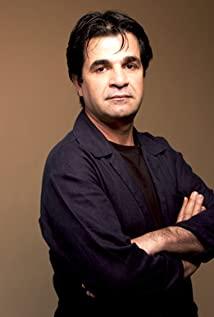Fatherland-bound and filmmaking-banned Iranian freedom-of-speech fighter Jafar Panahi's Golden Berlin Bear winner is a smuggled docu-fiction profoundly beholden to the works of his fellow compatriot Abbas Kiarostami, TEN (2002) in particular.
The be-all and end-all of Panahi's TAXI TEHRAN is his legerdemain of guerrilla filmmaking in its most effectual fashion, the portable cameras are circumscribed entirely inside the taxi, roving and examining a bigger social picture within its mobile, two-by-four space through the interactions among a handful of passengers. At first, Panahi teasingly elicits a question mark hovering our heads as we are not certain whether it is a fly-on-the-wall documentary recording conversations of random passengers in his shared taxi (like the heated debate between a capital punishment adherent and a more liberal-minded teacher), or an assemblage of pre-arranged playacting.
But soon, Panahi's own celebrity status gives away by a pirated DVD vendor, who recognizes him and later spitballs that the previous act of an injured man recording his will through Panahi's camera must be acting, a shorthand to inform us an Iranian wife's plight, who cannot inherit anything from her husband if not for a testament, henceforth, Panahi's modus operandi becomes clearer, it is not a documentary.
After a succinct exchange with a film student who patrons the vendor's collections, the film's initial brio lessens a bit in the episode with superstition and gold fish, then arrives Panahi's own niece Hana Saeidi, a pert schoolgirl who is given a sensitive issue to enact, about the un-broadcastablity of Iranian films, at the behest of a homework project, she wields her cellphone and levels it at Panahi, and later, during his absence, she conducts a petulant conversation with a garbage-collecting street boy, although it is highly unrealistic under the context, but you get Panahi's message.
After a chance-meeting with a roses-cradling human rights lawyer Nasrin Sotoudeh, to get the gist of a young girl's ongoing hunger strike against the state's banning of women watching sports in the stadium (a theme visited by Panahi's OFFSIDE 2006), TAXI TEHRAN finds a cushy ending when a pitch-black oblivion snatches our attention, curtailed by his means and resources, but strengthened by a spirit of undying intrepidity and integrity, Panahi's unadorned social reportage is remarkably high on his compassion and perception of his country and sensibly low on his own frustration and ire.
referential entries: Asghar Farhadi's A SEPARATION (2011, 8.8/10), THE SALESMAN (2016, 7.5/10).
View more about Taxi reviews







